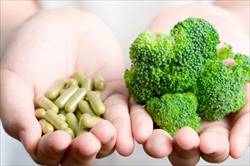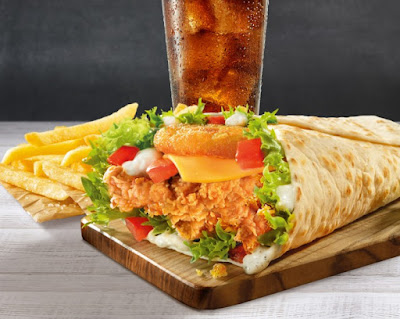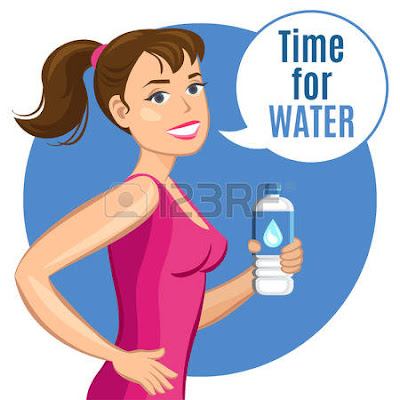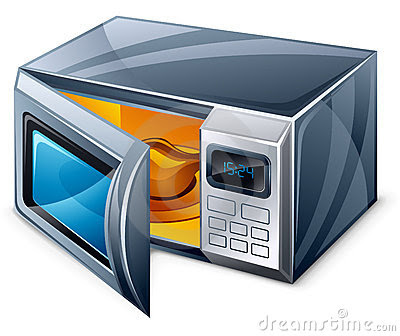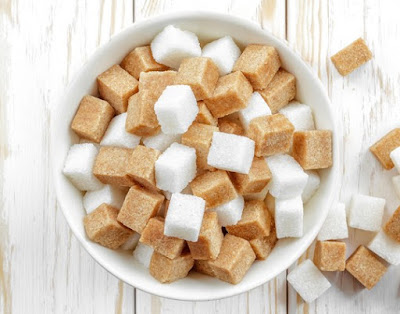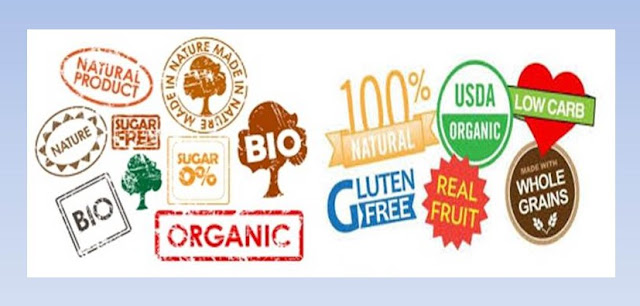Sugar free and fat free foods lead to fat-free bodies
When you read the words 'sugar free'
or 'fat free' across a box of chocolate it's you feel probably less guilty about eating the entire box in one
time. "Fat free and sugar free do not mean foods are calorie free. It
doesn't matter what type of food you are eating, if you are consuming more
calories than you're expending, you will gain weight. When sugar or fat are
removed from food, artificial ingredients may be added back to the food to enhance
its taste which will give you the extra calories!
Carbs make you fat
Carbs alone do not cause weight
gain but it is important to choose the carbs wisely. Carbs are the body's main
source of fuel so you need to consume a balanced diet higher in complex carbs
and lower in simple or processed carbs. It is advisable to eat more fruits,
vegetables and whole grains and less processed foods, refined carbohydrates and
white flour products.
You Need a Daily Multivitamin
Have
you heard about taking multivitamins to makeup the nutrient needs of our body
which are not fulfilled by diet? Researchers don’t agree on that point. But if
your doctor advices you to take vitamin, go for it. And if you’re pregnant, you
need to take folic acid to lower the risk of birth defects. But still it is good
to eat a balanced diet filled with fruits, vegetables, whole grains, nuts, and
healthy oils to fulfill the nutritional requirements of your body rather than
depending on pills.
Skipping sleep CAN cause weight gain.
It is found in study that who people
who sleep less than seven hours were more likely to gain weight; other research
has shown that even partial sleep deprivation ups production of the hormone cortisol,
which triggers hunger and can lead you to overeating. The increased
levels of the hormone also help cause higher insulin levels, your blood sugar
drops and you crave sugary, fatty foods.
Exercise can wipe away all my bad eating habits.
This one is unescapable and unluckily
a myth. You can’t out-exercise a crappy diet. It’s a calorie game, and people
often overestimate the amount of food they burn in an hour-long session. If you
do five workouts each week it doesn’t mean that you can eat whatever you want. You
can easily out-eat your exercising. It’s essential to both work out and eat
right for successful weight loss and to maintain good health.
Eat only egg whites and not the yolks.
Egg yolks have got had a bad crack,
supposedly being terrible for your cholesterol. Conversely, eggs won’t affect
your cholesterol balance unless they’re fried in butter and served with bacon.
In fact, one study by the University of
Connecticut found that the fat in the yolks helped to reduce LDL, or
the bad cholesterol. In fact, eggs are an inexpensive source of many nutrients,
including zinc and iron, antioxidants lutein and zeaxanthin, vitamin D, and the
brain-boosting chemical choline. Keep cholesterol in check by monitoring
saturated fat in your diet.
Drinking water helps you lose weight.
Drinking water won’t specifically prompt weight
loss, but it can support in the process. Water replaces other calorie-laden
beverages in the diet, initiating you to reduce your overall number of
calories. Also it keeps you feel fuller, so you may eat less at each meal.
Coffee causes cancer
Coffee has been linked to cancer
on over the past several years. However after 1980’s the scientists looked for
links between coffee and these cancers, using superior research methods and
studying larger groups of people. They found none. For instance, a review of 17
studies conducted from 1990 to 2003 found a 24 percent reduced risk of colon
cancer among people who regularly sipped coffee and tea. Studies have also
shown in recent years that drinking coffee appears to offer some protection
against other conditions, including Parkinson’s disease and type 2 diabetes.
Radiation from microwaves creates dangerous compounds in your food.
Microwaves, radio waves and the
energy waves that we perceive as visual light all are forms of radiation. So,
too, are X-rays and gamma rays—which do pose health concerns. Only a few types
of radiation cause cancer and these depend on the dose. But the microwaves used
to cook foods are many, many times weaker than X-rays and gamma rays and the
types of changes that occur in microwaved food as it cooks are “from heat
generated inside the food, not the microwaves themselves. Radiation from the sun can cause skin cancer,
for example, but just enough helps your body make Vitamin D, too. Microwaving
in some plastics may leach compounds into your food, so take care to use only
microwave-safe containers.
Brown sugar is healthier than white sugar.
In fact, brown sugar is mostly white sugar with
some molasses — so refining it further would give you white table sugar. As far
as your body is concerned, white and brown sugar are one-in-the-same.
References:
- www.sciencedaily.com
- http://www.webmd.com
- http://www.health.com
- www.forbes.com
- Cancer Research UK
- www.besthealthmag.ca
- Business Insider,"The dispensatory of the United States of America," Self Nutrition Data


